by May Ng
Monday, 19 October 2009 17:34
Mizzima News - Burma seems a long way from Obama’s White House compared to when Laura Bush was there, but Burma still holds an important spotlight during this historic moment of Obama’s Presidency.
The scourge of the 21st century is no longer the colonialism or even foreign imperialism. Real threat to peace and harmony in today’s world is more likely from domestic tyranny--where native dictators and military strongmen abuse their privilege and commit crimes against humanity under the veil of state sovereignty. Statesmen and scholars alike are at a lost on how to deal with this painful phenomenon of humanity’s shortcoming, and they are scrambling to find ways to end it. But in September 2007, peaceful Burmese monks rose up against the cruel military and brought the world’s democrats together for the first time in history to denounce domestic abuses of native people by army dictators in Burma.
American leaders came out in support of Burmese people’s struggle for democracy, and proved to the world their ability to rally against cruelty behind the wall of Burma’s nationhood. The Saffron Monks have empowered the people of Burma and the world by helping them realize that one can always find ways to resist tyranny on its own soil.
Awarding the Nobel Peace Prize early on in his presidency is an endorsement to Obama’s unique approach to the world’s dilemmas. For Obama the bar for his presidential achievement is now set higher and there is no going back to business as usual in Burma.
It will not be simple but the right approach can bring changes that Burmese people can truly believe in. To do so it is imperative that the administration recognizes Burma’s distinctive characteristics; for, in the past, historians and global organizations failed to see the smouldering discontent and galvanizing force of democratic ideals and Burmese Buddhism in Burma. Ordinary people’s loathing of their rule is the Burmese dictator’s secret fear, and an even greater secret is their relentless efforts to prevent those people from coming together to oppose their authority.
Burmese military’s usual tactics include cornering the opposition and separating them from others resistant forces, but on September 2007, their time for dictatorship was beginning to run out after government’s soldiers brutalized and killed peaceful monks in this devoutly Buddhist country. The military finally was without the mask of a benevolent protector and was seen attacking the ultimate legitimizing institution, made up of ascetic monks, the true symbol of compassion that continues to remain above politics in Burma. After witnessing the unthinkable atrocity against the Buddhist monks, some began looking into universal jurisdiction against the national sovereignty to find ways to hold those generals accountable for their crimes against humanity in Burma. Burmese author, Montgomery Thomas Htike, explored it in-depth in his research published recently under the title of ‘Challenges ahead on Burma’s Road to ICC’.
Obama should be able to predict the junta’s next game plan from its past record. For example, even though military dictatorship is the primary reason for narcotic trade in Burma, the junta’s generals were willing to cooperate with the US counter narcotic efforts by showcasing narcotic eradication to a handful of media each year. But they later used anti-narcotics supports and equipments received from the west to attack native people in the rebel countries by poisoning their wells with crop killing chemicals that cause birth defects and other serious damages or by only spraying rebel areas but not opium patches within military control. Not surprisingly, at the onset of American invasion of Iraq, taking advantage of the situation Burmese military immediately began the assault on Burmese Muslims by displacing and attacking them as unwanted people in their own country. Opportunism of the Burmese military generals is unquestionably a force to be reckoned with.
In the past no one in Burma was really able to challenge the political power until Aung San Suu Kyi came along, because no one had real ambition to lead all people including different political factions and native tribes of Burma before. From student rebels to leaders of ethnic nationalities, each was only concerned with its regional or organizational goal but not necessarily to become a leader of all Burma-- like Aung San Suu Kyi. This has been the real reason why success against the military dictatorship remains elusive after generations of various ethnic war fares in Burma. It seems that ordinary Buddhist Burmese are not only averse to materialism but in spite of the prolonged violent conflicts they are also averse to politics and political involvement.
Aung San Suu Kyi symbolizes a wholesome and true resistance to the military rule and she is not going away soon. Understanding this, the army junta is making use of Aung San Suu Kyi to quell the international outcry whenever it gets louder and tucked her back into house arrest when the voices die down again.
To help Aung San Suu Kyi with her genuine intention to find peace, it is imperative that the Obama administration will not abandon Laura Bush’s efforts in engaging with Burmese minority hill tribes who are precariously resisting the army’s tyranny in various locations throughout Burma. The sanitized hand shake with generals in Naypyidaw alone is not the kind of engagement that will alter the course of political struggle in Burma. Unless Americans are prepared to also engage with the armed and ceasefire or political organizations, their efforts will not carry much weight in Burma. Obama’s determination to sit down with disagreeable counterparts in the world without precondition means that the Americans are also free to engage with everyone including underground students’ organizations such as the one represented by Moethee Zun who is currently living in the United States while waiting for the rest of imprisoned leaders to be released.
Obama will be visiting Asia soon and since China’s ascendancy is the result of its decision to not to continue as the United States’ geo-strategic competitor but by becoming its capitalist economic partner, US’s involvement in Burma should not hinder China’s interest in Burma or vice versa. The 2007 ideological clash that resulted in global condemnation of China for supporting the military oppression of Burmese monks had certainly cost China a dent in its 2008 Olympic image. Also, China should not underestimate the overt anti-Chinese sentiment deeply rooted in Burma’s military, evident by the first ceasefire rebels whom Burmese Army crushed were Chinese as soon as the United States’ offer of engagement reached Naypyidaw.
In a rush to engage with Burma, Obama’s administration should not confuse Burma with China, Vietnam, or South Korea. Spiritualism that dominates Burma renders the majority of Burmese less inclined to materialism that transformed much of Asian Tigers. In this aspect it is also important to point out the existence of Chinese minority in Burma who can play an important role in bringing Burma into the 21st century of competitive trades and technology. Americans should no longer permit Naypyidaw generals to play China against America for the benefit of the military in Burma. Americans should help Burma find peace to not hinder Chinese’s efforts but to develop Burma in the interest of both China and the United States.
While no one can really guess what is on the mind of Burmese generals, one thing is certain is that they all want what other billionaires want for themselves and their families, and the US economic sanctions are the last thing they wish for. Global economic downturn is also hurting their effort to buy off their enemies inside Burma.
Their eagerness for lifting of economic sanctions betrayed their desperate need for Obama’s friendship and economic aid. If Obama can turn this into advantage in persuading the generals to sit down with the opposition forces to pursue a more permanent peace in Burma beyond the 2010 sham election, Obama would earn another stripe for winning the Nobel Peace Prize. Otherwise he will only be remembered as a friend of Burmese dictators, not for bringing a change they can all believe in, in Burma.
Tuesday, 20 October 2009
Subscribe to:
Post Comments
(
Atom
)





















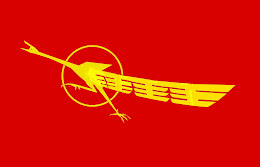





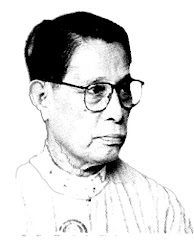


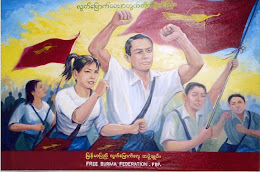





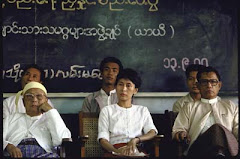

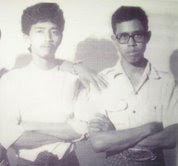

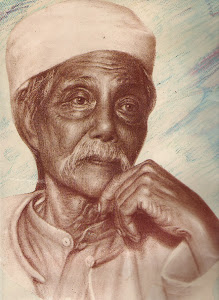
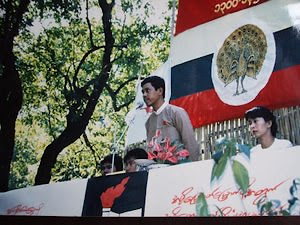
No comments :
Post a Comment